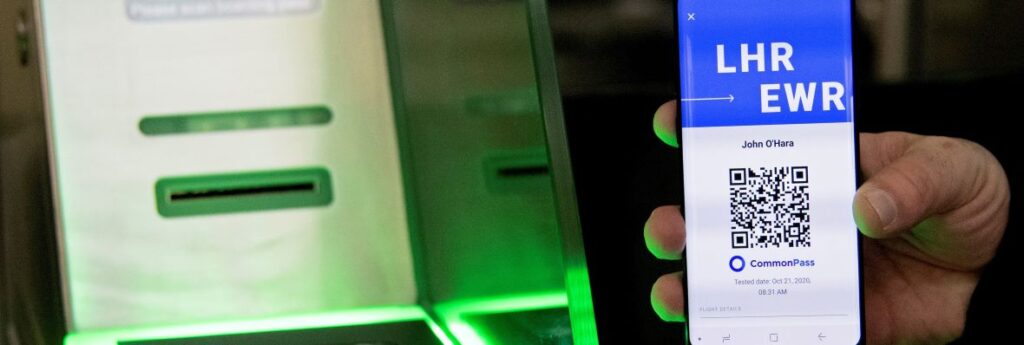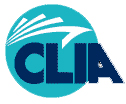A new smartphone app designed to make it easier for international airline passengers to securely show they’ve complied with COVID-19 testing requirements was unveiled with much fanfare in New York last week – the latest entry in a flurry of near daily developments from the medical and travel communities designed to get the world moving again.
The CommonPass digital health pass was tested on United Airlines Flight 15 from London’s Heathrow to Newark Liberty International Airport, using volunteers – including some from Internova Travel Group, parent company of the Travel Leaders Group and TL Network in Canada – carrying the app on their smartphones. Officials from the US Centers for Disease Control and Prevention and Customs and Border Protection were observing the test.
Designed by the non-profit Switzerland-based Commons Project Foundation in co-operation with the World Economic Forum, the project aims to establish standard ways to verify lab results and, later, vaccination records to help alleviate the existing patchwork of travel bans, quarantines and testing requirements in which each country imposes its own rules, often forcing passengers to present paper documents in different languages and from labs unknown to authorities in a given country.
Foundation CEO Paul Meyer said the digital health pass is “intended to give people the ability to travel again by documenting that they meet the requirements of the places they want to go…”
He added, “(It) allows countries and regions seeking ways to ‘thoughtfully reopen’ their borders an alternative to travel bans and quarantines.”
Passengers can use the app to find participating labs and testing sites, retrieve lab results and complete health attestations. The app and its associated data platform can confirm their results are in line with the destination’s requirements and generates a QR code that authorities can use to confirm compliance.
The foundation says this system protects privacy because people do not need to share their health information, only compliance or noncompliance. Additionally, CommonPass could be deployed by countries without waiting for a broader international agreement. It is also intended to be adaptable whenever requirements change.
Meyer said that capability would be important after the arrival of vaccines, which may differ as to number of doses and length of time they’re effective.
“Let’s put the foundational infrastructure in place that gives countries the flexibility to adapt those rules over time, and then allows travellers to effectively bring their information with them and demonstrate that they satisfied the rules that are in place at the time they want to travel,” he said.
“The ability to verify health information in a secure, verified manner will allow countries and regions to open borders and restart the travel industry along with the economic activity that comes with it,” said Internova CEO J.D. O’Hara, who took part in the trial. “This CommonPass pilot demonstrates that we have a means of enabling safer cross-border travel by giving both travellers and governments confidence in the COVID-19 status of every traveller.”
O’Hara described using the app as “easy to understand, quick and efficient.”
US Travel Association President and CEO Roger Dow was quick to applaud the initiative.
“The US and global economies simply cannot afford to wait for a widely distributed COVID vaccine for international travel to resume, so innovative technologies and the embrace of best health practices need to provide the way forward,” he said. “A rapid and secure means of verifying travellers’ COVID status is an important component of that, so we’re excited about the advancement of CommonPass.”





















